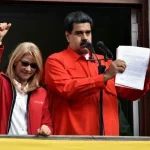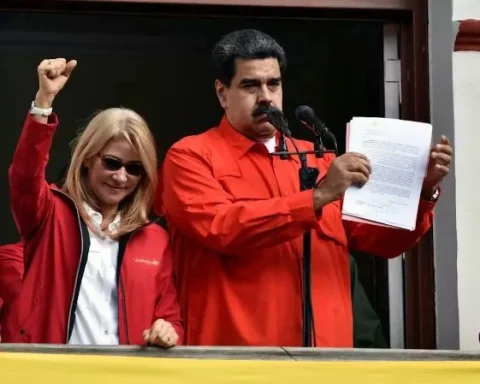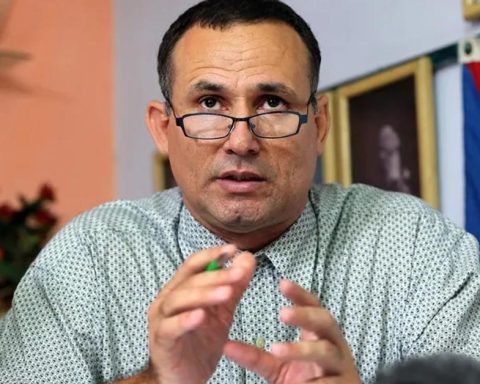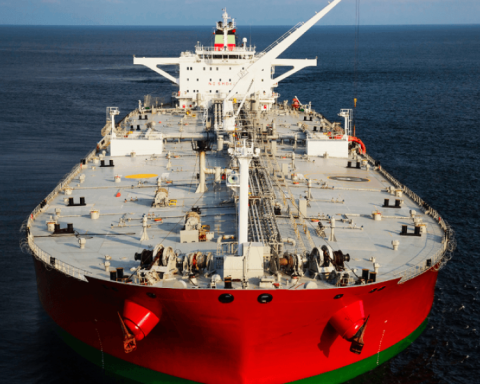Last year companies around the world began raising prices at a rate not seen in decades. Among the major economies, one country was one of the hardest hit: the United States.
Prices rose at an annual rate of 4.7% last year, faster than any other country in the Group of Seven (G7) of more developed economies, according to the Organization for Economic Co-operation and Development (OECD). In the UK, for example, inflation was just 2.5%.
Last month, inflation in the US hit 8.6%, one of the highest rates in the world.
Many of the factors driving inflation last year were not unique to the United States, such as supply disruptions from the Covid pandemic and rising food prices from crop damage from severe storms and droughts.
The reason the US fared worse? In two words: high demand.
This increase in demand was driven by the US$5 trillion approved by the US government to protect households and businesses from the economic impact of the pandemic.
By cushioning family finances, the aid, which included direct checks to households, helped people continue to shop.
There was an increase in demand for goods such as furniture, cars, and electronics, and the reason was that consumers redirected money that they might otherwise have spent on restaurants and travel.
And as unusually high demand met supply problems stemming from the pandemic, companies raised prices.
A recent study by the Federal Reserve Bank of San Francisco concluded that pandemic relief packages likely contributed to a 3 percentage point increase in inflation through the end of 2021, a factor that largely explains why US inflation The US surpassed that of other countries in the world.
Oscar Jorda, the bank’s senior policy adviser and one of the people who worked on the study, cautioned against putting too much emphasis on exact percentages, but said the big picture is clear.
“These programs … were a considerable injection of liquidity in the pockets of consumers at a time when the industry was perhaps not prepared to respond to an increase in demand,” Jorda said in an interview in May. Those aids translated into “a great stimulus to what I would call demand-driven inflation.”
The risk that aid packages would trigger inflation was raised before they were passed, most notably by Harvard University economist Larry Summers, a longtime Democratic Party adviser, as well as by some Republicans.
But other experts, including the head of the Federal Reserve or Fed, the central bank of the United States, argued that the price increases would be “transient” and would disappear as the problems in the supply chains related to covid abate.
The Fed, which launched its own stimulus policies at the start of the pandemic, was slow to respond to price increases, even as US inflation expectations began to shift, says economist Ricardo Reis, a professor at London School of Economics.
“That (the change in expectations) is what made the transient persistent and again the Fed was slow to respond to that,” Reis said.
This Wednesday the Fed announced the biggest increase in interest rates in almost 30 years as part of its strategy to stop the increase in inflation
With US households sheltered by stimulus checks, rising prices weren’t widely felt last year as a cost-of-living crisis, even though wages didn’t keep up with inflation.
But as consumers depleted their savings, the landscape has changed, creating a serious political problem for US President Joe Biden, whom Republicans blame for rising prices.
Biden, for his part, has blamed the war in Ukraine, which affects oil supplies and exports of basic products such as wheat, raising prices and impacting consumers around the world.
In the Eurozone, prices rose at an annual rate of 8.1% in May, led by countries close to Russia that depend on its oil and gas, such as Estonia, where prices rose 20.1%.
In the UK, which is also heavily dependent on food and energy imports, inflation hit 7.8% in April (just behind the US among most advanced economies) after the cap limiting energy bills, says the OECD.
The consumer price index compiled by the British government, which excludes housing costs, which are included in the OECD figure, showed an even faster rise: 9%.
Even Japan, which has struggled to keep its inflation rates above zero, saw a 2.5% price increase in April.
The OECD expects inflation to peak this year, averaging 5.5% among the most advanced economies and 8.5% for the organization’s 38 countries, before receding in 2023.
Professor Reis said he was encouraged by the steps the Federal Reserve, the Bank of England and other institutions have taken to tackle the problem, including raising interest rates.
By making borrowing more expensive, such measures help cool demand from households and businesses, easing price pressures.
“I hope, although it is a bit uncertain, that this can happen without causing a recession,” Reis said.
The expert added that it is unlikely to return to the typical inflation target of 2%.
In the short term, rising interest rates increase economic uncertainty, especially in smaller countries, which are vulnerable to sudden changes in money flows and exchange rate fluctuations.
Even in the largest economies, policymakers are looking for ways to cushion the impact of inflation on households hit by skyrocketing costs of living.
The UK government recently announced a measure to combat rising energy bills: a £15 billion ($18 billion) aid package financed by a one-off levy on oil and gas companies.
Some countries in Europe, such as Spain and Portugal, have set gas price ceilings, a type of response economists generally discourage, as caps tend to keep demand high by subsidizing consumption.
In the US, Biden released unprecedented amounts of oil from national reserves to try to reduce the price of gasoline, which, in addition to food, is the other most immediate “pain” point for consumers.
But as the war in Ukraine continues to expose supply problems, the power of politicians and central banks is limited, analysts say.
“In the long run, they can do a lot of things in terms of investing in different energy transition policies and things like that,” says Oscar Jorda. “But in the short term there really isn’t much that can be done.”
Remember that you can receive notifications from BBC News Mundo. Download the latest version of our app and activate it so you don’t miss out on our best content.

















